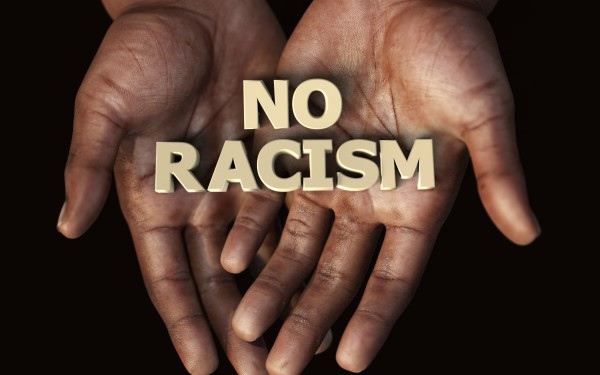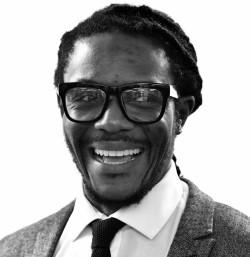
Our interview with Wayne Reid is part of a series of profiles of key figures who have shaped social work over the past five decades, to mark Community Care’s 50th anniversary. Previous interviewees include Eileen Munro, Herbert Laming, and June Thoburn.
In 2021, Wayne Reid became the first anti-racism visionary at the British Association of Social Workers (BASW). In this role, he spearheaded several initiatives to tackle racism in the profession and provide safe spaces for Black and ethnic minority practitioners.
Over the years, he has written extensively about anti-racist practice and authored resources to influence organisational practice and policy for systemic and lasting change.
For Community Care’s 50th anniversary, Reid recounted his experiences as a Black social worker, the role of George Floyd’s murder in his anti-racism advocacy and the need to change organisations’ responses to racism in the workplace.
A long journey into social work

Wayne Reid
Reid’s journey to becoming a social worker was not straightforward.
He was introduced to a career in social care when he became a placement officer at an independent fostering agency (IFA) in 1998, at the age of 18.
The experience sparked a desire in him to pursue a career in supporting foster families as a supervising social worker. However, he could not afford to train to become a social worker at the time.
So, he continued to take on roles that aligned with his passion, including with the national probation service and Sheffield City Council’s youth offending team.
It was a decade after that first role, in 2008, that Sheffield recognised his ambition and sponsored him to undertake a social work degree at the Open University, while working full-time in a care leavers’ service.
Upon his graduation, in 2010, he began working at an IFA as a supervising social worker, finally achieving his decade-long dream.
Experiences of racism as a practitioner
Yet working in social work was far from perfect.
During his time as a new practitioner, Reid experienced covert organisational and systemic racism. He says:
[I] was undermined, scapegoated, overlooked for career progression on occasions and seen as a diversity hire.”
“I have been faced with jealousy and accused of being a ‘careerist’. [Once], a white academic said to me in utter disbelief: ‘You speak better English than I do’.”
Comments like those highlight the entrenched everyday racism that exists in the social work workplace.
Seemingly harmless banter and statements that have a racial undertone point to a lack of awareness and sensitivity about racism and the experiences of Black and ethnic minority practitioners, Reid says now.
Although he did not experience much overt racism while working in frontline roles, a memory that comes back to him is of a foster family who “were outraged when I was allocated as their social support worker”.
“They made it clear that they didn’t like me, and they colluded with other foster carers to undermine my decision making and practice.”
But when it was time to part ways a couple of years later, the family admitted that Reid’s work had both made them a better foster family and helped them recognise their own assumptions and biases.
“Moments like that made the hard times worthwhile for me,” says Reid.
The Black & Ethnic Minority Professionals Symposium
However, it was the murder of George Floyd in 2020 that sparked Reid’s anti-racism advocacy and work.
During the resurgence of the Black Lives Matter movement, as part of his work as the professional officer and then-anti-racism visionary at BASW, he formed the Black & Ethnic Minority Professionals Symposium (BPS).
The group, he says, provides a safe space for Black and ethnic minority social workers to offload and generate strategies to tackle the challenges they face as professionals.
He commemorated the first anniversary of Floyd’s murder with a report documenting the actions taken by social work organisations from 2020-21 to tackle racism, providing strategies organisations can replicate.
Through BPS, in 2022, he also published the relational and anti-racist supervision form, developed by social worker and trainer Shabnam Ahmed. This is designed to promote an anti-racist and anti-discriminatory approach to supervision that also supports practitioners’ wellbeing.
According to Reid, the approach has been successfully adopted by social work practitioners, students, managers and practice educators across England.
“Using the supervision template really helped me think about identity and encouraged me to be curious about the wholeness of the person in front of me,” said the head of a family support and complex families team.
They added: “[It pushed me] to explore and understand what it is like to be them, doing this role, their stories and biographies and all the ways those things intersect.”
In another example, the supervision template was described as a “transforming and empowering” experience by a student, “helping them to amplify their voice and highlight their supervision needs”.
The student added: “The template captures what the person is going through, allowing for an understanding of them as a person. It brings a human element of being and has changed the nature of the supervision to one of learning from each other and articulating feelings.”
Sharing news about anti-racist practice
The resurgence of the Black Lives Matter movement following Floyd’s death also inspired Reid to start a newsletter, called Wayne’s Weekly, to help inform social workers about racial justice and anti-racist practice.
The newsletter ran until December 2023 and recipients provided positive feedback about it, particularly in relation to raising awareness about racism in the workplace, in response to a survey last year.
One social worker said: “I like that you bring together information and widen access to resources that I may not have found myself without a lot of effort – which I don’t have time for.
“This relates especially to anti-racist stuff that you bring and has helped me massively in making steps to critically check my own practice and acknowledge that racism exists in social work.”
Another noted the best part of the newsletter was the “resources and opportunities, particularly those relating to anti-discriminatory practice (and positive-discriminatory opportunities) that don’t get the same profile in other social care bulletins”.
‘Everyone has a duty to combat racism’
For Reid, to have real change in society, it is “imperative” for individuals to acknowledge “the intrinsic and inherent” nature of white privilege.
Recognising this involves an understanding that the onus to tackle racism in the profession cannot only be on Black and ethnic minority social workers.
“Everyone has a duty to combat racism and other forms of discrimination in the spaces they occupy,” says Reid.
Share your story

Picture: daliu/fotolia
Would you like to write about a day in your life as a social worker? Do you have any stories, reflections or experiences from working in social work that you’d like to share or write about?
If so, email our community journalist, Anastasia Koutsounia, at anastasia.koutsounia@markallengroup.com
This, he adds, includes reporting incidents of racism when they occur, forming like-minded alliances with peers to tackle key issues, raising awareness and making suggestions for positive reform.
In addition to individual efforts, changing organisational policies and response to instances of racism is one of the biggest challenges to initiating lasting change, but crucial to address, says Reid.
‘Tokenistic’ organisational responses
Over the years he’s observed that one of the most common ways for organisations to respond to racial inequality is through silence until “stuff blows over”.
“This type of organisational response usually commends staff for being resilient and deflects attention away from the essential redesign of systems that routinely make people suffer,” he says.
“This response not only fails to move towards being anti-racist, but also reinforces the perception and prevalence of white privilege for many people of colour.”
Other examples he’s encountered include “sympathetic and non-committal statements” or proposals of “minor changes to already vague policies with little or no accountability”.
Reid deems such approaches “well-intended” but still “tokenistic, [overlooking] the nuanced obstacles that people of colour face every day”.
Instead, he suggests setting recruitment targets to employ Black and ethnic minority senior leaders, having in place peer-led support groups for those who have experienced workplace trauma associated with racism (and other types of discrimination) and training all staff in anti-racist practice.
He cites Durham County Council as a good example of a local authority promoting anti-racist practice.
The council has developed an anti-racist practice hub, with resources for staff to access, and has a network for Black and ethnic minority employees, which holds regular wellbeing sessions and discussions with leaders about inclusive policies and practice.
Similarly, Reid acknowledges the work of Tavistock and Portman NHS Foundation Trust in providing leadership mentoring for staff from Black, Asian and ethnic minority backgrounds and regular training for staff in race equality.
Vision for the future
Looking forward, Reid believes organisations need to address the overwhelming lack of “anti-discriminatory, anti-oppressive and anti-racist” values and policies in education, training and professional standards.
Social Work England’s professional standards require registered social workers to “challenge the impact of disadvantage and discrimination” and “promote social justice, helping to confront and resolve issues of inequality and inclusion”.
But these apply to practitioners, not to leaders (unless registered) or organisations.
For real progress, Reid says that “we need senior social work leaders and major organisations to take more accountability and responsibility towards implementing anti-racist policies and practising them within the social work landscape”.
However, despite the challenges in the sector, he believes social work to be an “exciting space for aspiring professionals to drive change”.
He advises anyone starting out to “be resilient, identify suitable mentors and role models, be self-aware, incorporate feedback” and not be “deterred by rejection”.
“I’d like to think there’s been some progress in terms of what we’ve been able to do to shape policy, practice and education,” he adds.
“There are lots of people in the space that I’ve worked with, people who are doing fantastic and trailblazing work and I am sure the next generation of social workers will make an equally impactful mark in the sector.”
Who would you like Community Care to interview next for our 50th anniversary?
Celebrate those who’ve inspired you
For our 50th anniversary, we’re expanding our My Brilliant Colleague series to include anyone who has inspired you in your career – whether current or former colleagues, managers, students, lecturers, mentors or prominent past or present sector figures whom you have admired from afar.
Nominate your colleague or social work inspiration by either:
- Filling in our nominations form with a letter or a few paragraphs (100-250 words) explaining how and why the person has inspired you.
- Or sending a voice note of up to 90 seconds to +447887865218, including your and the nominee’s names and roles.
If you have any questions, email our community journalist, Anastasia Koutsounia, at anastasia.koutsounia@markallengroup.com




 Bournemouth, Christchurch and Poole
Bournemouth, Christchurch and Poole  Hampshire County Council
Hampshire County Council  Oxfordshire County Council
Oxfordshire County Council  South Gloucestershire Council
South Gloucestershire Council  Wokingham Borough Council
Wokingham Borough Council  Webinar: building a practice framework with the influence of practitioner voice
Webinar: building a practice framework with the influence of practitioner voice  ‘They don’t have to retell their story’: building long-lasting relationships with children and young people
‘They don’t have to retell their story’: building long-lasting relationships with children and young people  Podcast: returning to social work after becoming a first-time parent
Podcast: returning to social work after becoming a first-time parent  How managers are inspiring social workers to progress in their careers
How managers are inspiring social workers to progress in their careers  Workforce Insights – showcasing a selection of the sector’s top recruiters
Workforce Insights – showcasing a selection of the sector’s top recruiters 

 Facebook
Facebook X
X LinkedIn
LinkedIn Instagram
Instagram
An irrepressible social work pioneer.
It’s the doing we want from visionaries not the talking. If there is anyone left in social work who doesn’t know or understand that racism and bigotry are endemic in the profession they are beyond anyone’s grasp to change. Newsletters, blogs, conferences, chats with the already convinced are no doubt laudable but their impact on the ground is negligible. What social work needs is good old fashioned boring collective political activism. Good on Mr Reid for plugging away but time for highlighting should be long over. Get involved in your union and elect shop stewards if you really want change. That way managers won’t patronise with lip service or feel they have impunity to victimise and bully.
Pretty much what is said here then – https://vimeo.com/927928923?
Not quite the point I make.
Do tell us about what you’re ‘doing’ about the issues you raise Ade.
Michelle, I am a shop steward, I am politically engaged in my local community, I volunteer at a food bank once a month, I don’t shy away from challenging my managers however hard they try to victimise me. Boring stuff no doubt in the age of podcasts and blogs but enough for me to know I can make a difference in my own environments. I have no desire to have a higher profile. I’m a tad confused at the underlying anger and at the defensiveness here. Are we all meant to share in the narrative expressed by most here? If so why? Is social work now a cosy club of agreeing nodding heads? My question to you is aren’t we supposed to challenge, scrutinise, criticise, comment and hold each other accountable for our actions and claims? Strange kind of social work that doesn’t brook dissenting voices, critical evaluation and scrutiny of narratives. Every person I’ve represented in a disciplinary who felt supported and heard, every food parcel I’ve handed to a family, every time I’ve attended a campaign to keep a park open and the like, every decision that I’ve compelled my managers to justify is my social work. That’s what I’m doing.
Ok Ade, I was only asking! Good on you!
I actually applied for the job I have from a link I saw in WW. A job I love. Thank you Wayne!
The Wayne’s Weekly adverts were so well crafted and always made me think. My favourites are ‘Black intellectuals’ and ‘The Charlie Brown knowledge drop’.
Good article, but it could have been more thorough. No mention of Outlanders, the Triple A Chinwag, the Synergy Sessions, his interviews with politicians or his work with the TUC – there’s a lot missing!
What a prolific and versatile professional Wayne Reid is. A true social work great. Take a bow.
This article is a better acknowledgement of Wayne’s work than the rancid Social Worker of the Year award he was robbed of.
Not winning that silly award was a bonus. It’s probably helped his reputation.
I’m a shop steward, I’m politically engaged in my local community, I volunteer at a food bank once a month, I challenge my bosses even when under threat of victimisation. My profile is local, I’m not interested in being recognised. Why such anger and defensiveness would be my question to you. We are meant to challenge, scrutinise, comment, criticise, and constantly keep each other accountable aren’t we?
I worked with Wayne a long time ago. He always thought outside the box. I didn’t realise he had such hidden talents. The accolades he receives are truly deserved.
He’s the unofficial and heir apparent Chief Social Worker.
Wayne’s articles on Social Work England skilfully indicated early on how they function as an organisation. Those articles remain a masterclass in investigative reporting, maintaining professionalism and command of the English language.
Wayne has undoubtedly made BASW more relevant in social work. I know lots of people who only joined them off the back of his work.
Wayne inspires me to do better, to be more reflective and conscious of racism in myself and compel my organisation to do the same. He should be recognised at the highest level for his dedication and achievements.
In an ideal world, Wayne Reid would have a dual role as CEO of BASW and Chief Social Worker. It’ll never happen, but it’s worth imagining.
I’m still working my way through the WW editions!
I loved the slogans used in Wayne’s Weekly –
• A bird’s eye view
• Aimed at hearts and minds
• Crushing Stereotypes Daily
• Delivered in the spirit of generosity
• Educates/Empowers/Equips
• Informative and transformative
• Omnipresent
• On Point
• On the Pulse
• Spot On
• Unconventional, but always mentionable
All great hooks – perfectly apt for Wayne’s work.
He’s a breath of fresh air to what is otherwise a very dreary and stagnant social work leadership.
He is so much more than a social worker and anti-racism activist.
When I did some digging on SWE’s corporate plans and Readiness for Practice, I was pleasantly shocked by BASW’s comprehensive and robust responses. Then I read who had coordinated and compiled them and sure enough guess who was the common denominator…?
https://new.basw.co.uk/sites/default/files/resources/swe-corporate-strategy-consultation.pdf
https://new.basw.co.uk/sites/default/files/resources/swe-readiness-for-professional-practice-consultation.pdf
With Rebecca Pierre leaving recently, something tells me BASW doesn’t appreciate the assets it has.
It’s a shame there’s no mention of The Synergy Sessions – it’s arguably his best work!
Wayne is one of the most important and influential figures in social work in modern times. I believe his full potential remains untapped.
I asked Copilot “Other than anti-racism, what else is Wayne Reid known for?” and got the following reply:
“Wayne Reid, the first anti-racism visionary at the British Association of Social Workers (BASW), has made significant strides in tackling racism within the profession. In addition to his anti-racism work, here are some other aspects of Wayne Reid’s career:
Professional Officer: Wayne has served as a Professional Officer at BASW for over three years, contributing to various aspects of social work practice and policy.
Diverse Social Work Roles: He has worked in roles such as a Youth Offending Team, Leaving Care Team, child protection, and adult mental health services. Before joining BASW, he spent eight years working in fostering services.
Prolific Writer: Wayne is a prolific writer, authoring resources to influence organizational practice and policy for systemic change.
His multifaceted contributions have had a significant impact on the social work profession.”
So accurate!
Mr Reid has all the accolades and perhaps deserves more for highlighting the fundamentals. What I’m interested in is concrete improvements. Is racism less now? Is victimisation reduced now? Is SWE subjecting fewer black, Asian and other minority background social workers to FtP now? No to all in my experience and workplace. We need leadership that galvanises. Mr Reid makes a good go at that but whatever his skills and qualities working in a top down organisation like BASW inhibits truly radical campaigning. Too many intimacies with the real power wielders to act boldly let alone independently. Inside the tent and all that is a good sound bite but not much light and sunshine seeps into tents.
I’ve followed his career closely for a long time and been consistently impressed by his adaptability. A jewel in the crown for social work and BASW.
Wayne Reid helped me realise just how racist social work and society really is for black people.
I met him at a conference a few weeks ago – a genius and a gentleman.
Way ahead of his time.
I’ve only recently discovered Wayne’s work. Where have I been?!
There really is a lot missing here… Just in the last several months alone, I’ve looked at the following (which are not included) –
https://www.cumberlandlodge.ac.uk/wp-content/uploads/2024/04/SCREEN-REPORT-spreads-Protecting-Young-Black-Lives-Celebrating-Black-Professionals.pdf
https://youtu.be/OjZ-EFdwS8Y
https://www.youtube.com/watch?v=KvZefxxKwFw
https://vimeo.com/931983478
https://new.basw.co.uk/policy-and-practice/resources/synergy-sessions-basw-england-mini-series
https://www.youtube.com/watch?v=TSGlKIqf2c8
One word – magnificent!
A one-man whirlwind. What a legacy!
The multifaceted nature of Wayne’s work is unprecedented in social work and commands respect.
It’s interesting to look at which people and organisations Wayne has NOT worked with. That seems to tell its own story.
I don’t know how he navigates the bureaucracy of BASW with his visions – it cannot be easy!
I don’t necessarily agree with Ade and Lee but I’m glad there are social workers who don’t readily fall in step with the prevailing narrative. We need more social workers who are not content with being led and who get uncomfortable by raising questions. Less complacency and more critical thinking would reset social work to become relevant outside of the self affirming cliques again.
Performative nodding heads is the definition of the lazy complacency of social work content with slogans but weary of thought. Most discussions on racism, culture, identity, discrimination and structural inequality are like listening to a self selecting debating society where the arguments are already known and the words already accepted before a sentence is uttered. Conformist, devoid of real interest in debate, content to move on to whatever new argument comes along without having made any difference or having achieved real change. For all of the smug claims made by social workers about respect and inclusiveness there are no real conversations in social work, no dissent is brooked. Self satisfied at doing “our bit”. If you are in the right social work clique you could talk about Lego as a metaphor for how building blocks are the foundation for radical social work or if that doesn’t gain traction how Lego can be a metaphor for the fragmentation undermining social work and the assent will be equally emphatic. You want thoughts? Social work is awash with them, you want actual achievements?Social workers are waiting to be told who has. Nowt to do with us guv, we are only here to affirm each other. Sometimes what visionaries expose isn’t so much their own wisdom but the vacuity of acolytes.
The people I’ve come across who dislike Wayne and his work can usually be categorised as workplace bullies, racist, small-minded, jealous, Tories and/or miseducated.
People who disagree with another viewpoint or make a comment that isn’t fawning aren’t de facto bullies, racists, small minded, jealous, Tories or miseducated. People who disagree with people who disagree with people they agree with generally might be. The no dissent allowing thought monitors who casually throw assumption around might want to reflect on that given no one here necessarily knows anything personal about any poster. Some of us who might agree but also have a critical gaze on what Wayne comments on are like me born in Africa. Frowning on black people who might disagree with black people in my humble opinion makes the frowner a tad racist not necessarily the dissenter. We are not all the same, we do not think alike and we are more than capable of having discussions and disagreements without feeling we are traitors to what other peoples definition of black consensus.
I can criticise someone without disliking them and not be all the other offensive accusations too. Unless of course we are not allowed independent thoughts and to challenge arguments respectfully.
Come on now Ade and Violet, I said *usually* and I’m usually correct about most things.
I find that the people who I come across who are convinced that they are usually correct about most things can be categorised as workplace bullies, racist, small minded, jealous, Tories and/or miseducated. Dreamland belongs to Margate, self defined superiority is usually not evidenced in reality. The social work of “nodding heads” eventually leads to a cricked neck. Mind that’s probably less ouch than the discomfort of independent thought.
“Vacuity of accolytes” is the most apposite description of what usually passes for informed discussion between social workers I’ve ever heard. Thanks Lorraine. We’ll just park it here I think.
These comments have taken a strange turn. Let’s just agree to give Wayne Reid the respect he deserves and move on!
I’ve read this article several times and found new stuff each time. It contains a lot – but not enough!